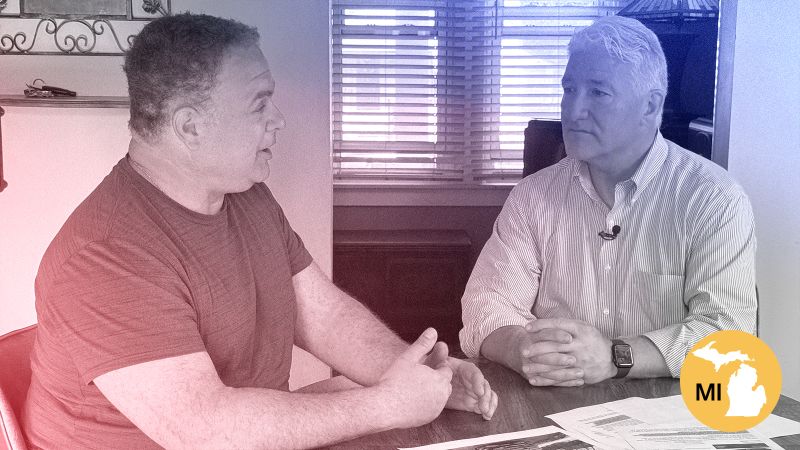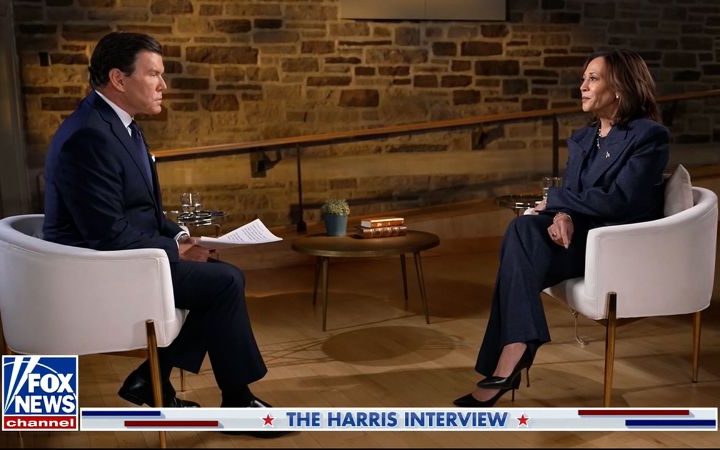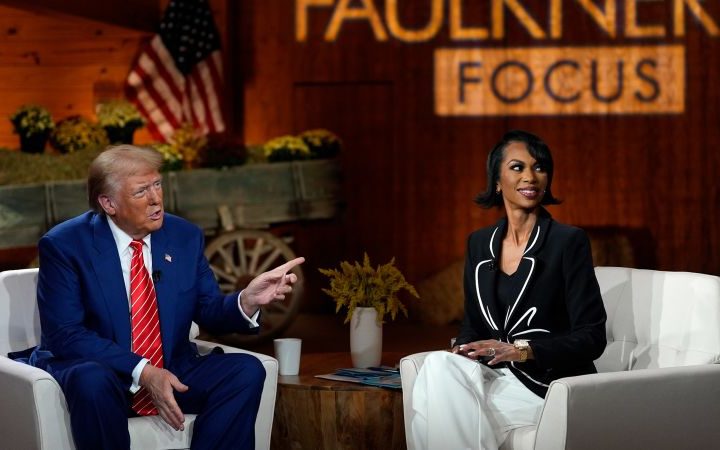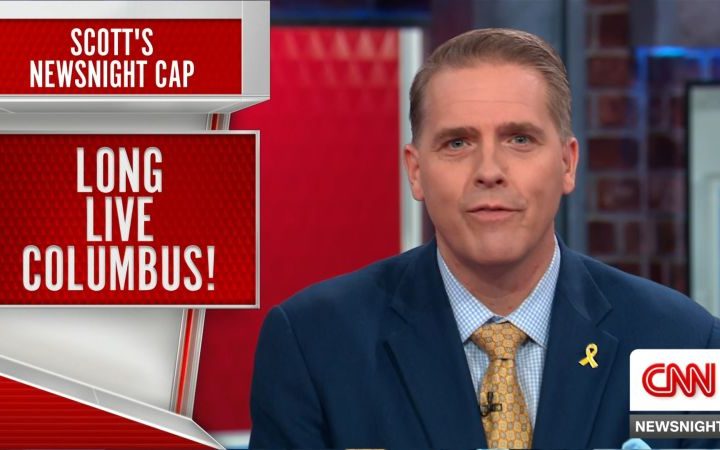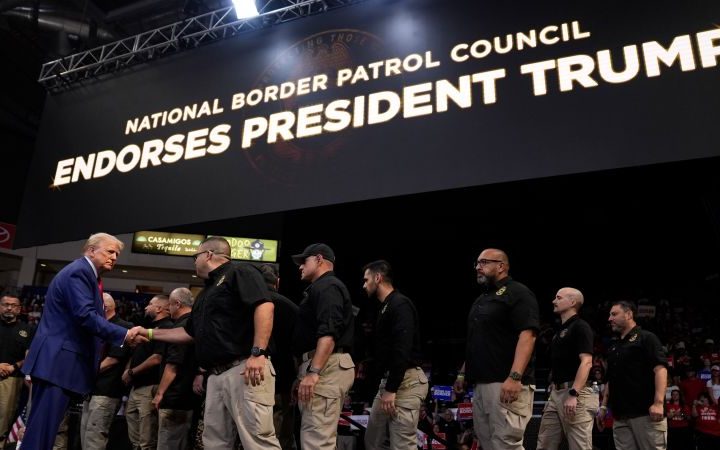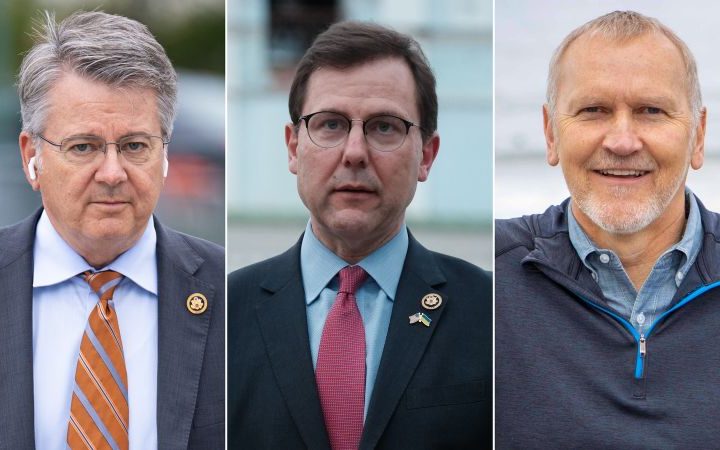Walter Robinson Jr. bets about 40% of his Ford Motor Company co-workers are for Donald Trump. He doesn’t get it.
“Donald Trump has never had a real job before,” said Robinson, a 35-year Ford employee who started on the assembly line and now works in quality control. “He’s never come in there and shot six bolts and put in four push pins 600 times a day on the assembly line.”
“He’s never shoveled crap,” Robinson continued. “He’s never done a hard day’s work. Not physical work like you do in the plant. And he has a solid gold toilet at home. So, I mean, how can he really empathize with your life?”
Sometimes Robinson joins the debate along the assembly line or in the break room, pointing out President Joe Biden’s long history of supporting organized labor, including his decision to join striking United Auto Workers on the picket line in Michigan during their six-week strike last year. The UAW endorsed Biden earlier this year.
The retort?
“You, know: guns, gays, abortion, sleepy Joe, Hunter Biden,” Robinson said. “They just tell me these outlandish things that they think are important. … If Hunter Biden is such a big issue, why isn’t Jared Kushner a big issue?”
The autoworkers strike, which ended late last year, was a big win for the UAW. Robinson got a nice raise and cost of living adjustments were restored in the deal. The bigger gains went to less experienced UAW members hired after the 2008 financial crisis, when the automakers said their only path to survival was a two-tier wage and benefits system that paid new workers less.
“I think we got more than I thought we would,” Robinson said in an interview during his lunch break at the UAW Local 900 headquarters across the street from a giant Ford assembly plant.
But it didn’t solve everything.
“Gas prices are still pretty high,” Robinson said. “It’s just me and my wife and it’s $200 every time I go to the grocery store.”
We met Robinson as part of a CNN project tracking the 2024 election through the eyes and experiences of voters who live in presidential battleground states and are part of key voting blocs. UAW membership is way down from Detroit’s heyday, but at roughly 134,000 members in Michigan now, the union remains a political force in this swing state, which Biden won by less than 3 points in 2020 after Trump won it by less than a point four years earlier.
Robinson believes the UAW leadership has improved its standing with the rank and file because of the contract gains. But he is skeptical that the UAW endorsement of Biden will sway many of his union colleagues who back Trump.
“You have people in there, in the plant, who don’t want to be told what to do,” Robinson said.
Blue-collar voters looking for politicians who understand them
People like Bill Govier from Wixom, Michigan.
“I love my job,” said Govier, a 25-year Ford employee and UAW member who started on the assembly line and now works as a millwright. “As a skilled tradesman, I definitely love my job.”
Govier calls himself “a little more on the conservative side, but really close to the middle.” He voted for Trump in both 2016 and 2020. “I’m probably more tolerant than I have ever been, but the powers that be label me as some far-right White supremacist MAGA Republican,” he said.
Govier also bristles at how critics label Trump.
“Everybody wants to say, ‘Oh he said this, it’s the nastiest thing ever.’ Stop, just stop. Quit taking things out of context, read the whole thing, listen to the whole thing,” Govier said. “I just don’t see him as the anti-Christ, or Hitler. That’s ridiculous.”
Govier described his 2016 vote this way: “I don’t trust Hillary (Clinton) . … I voted against Hillary more so than for Trump.”
In 2020, he said he “liked where the country was going,” praising the pre-Covid Trump economy and how the then-president handled relations with North Korea.
Now, Govier said, “I’m leaning away from Biden more than for Trump.”
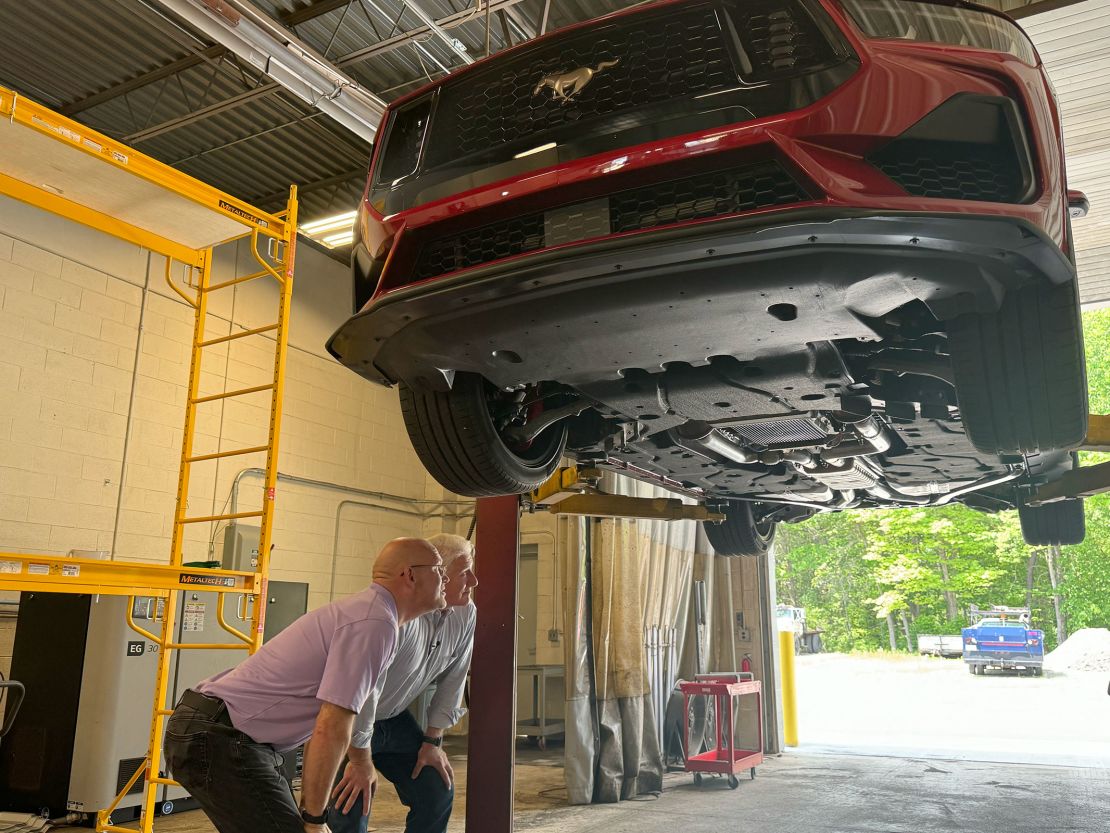
Govier makes a point we hear a lot from blue-collar voters in our travels.
“I don’t think there are a lot of people in this country under the age of 40 that really understand what it is like to work with your hands,” Govier said. “Most of the politicians I don’t think understand it. … So, it is hard for guys like us to feel represented properly.”
Before committing to vote for Trump in 2024, Govier said he wants to research independent candidate Robert F. Kennedy Jr.
But he said he would be hesitant to vote third party if he believed it might help Biden.
“I would really rather have Kennedy,” he said. But if voting for him boosts Biden, he added, “I might have to vote for Trump.”
Chris Vitale has no hesitation about his 2024 choice: he will proudly vote for Trump a third time.
“I’m sort of the hands of the engineer,” is how he describes his job doing mechanical work in the engine development shop at Stellantis, the parent company of Chrysler. He is a 30-year Chrysler employee and 30-year UAW member.
Vitale blames Democrats for his Trump support.
Gone from the party, he says, are people like former Missouri Rep. Richard Gephardt, who twice unsuccessfully sought the Democratic presidential nomination, first in 1988.
“He raised a lot of midwestern manufacturing concerns with NAFTA and things like that,” Vitale said of Gephardt. “So what happened to those Democrats? Those are the Democrats I wanted to vote for. They’re gone now.”
Vitale said he initially viewed Trump as “just another distraction, a sideshow or something” early in the 2016 race. But then he heard Trump talk tough on trade and promise to revive American manufacturing.
“I’ve watched this region go from the arsenal of democracy,” Vitale said. “I watched it go from that realm of importance to now we’re happy we can get a sports stadium or we’re going to sell weed or fireworks. It’s absolutely pathetic what we have sunk to and our politicians, they’re good with it. He isn’t. So that is the difference.”
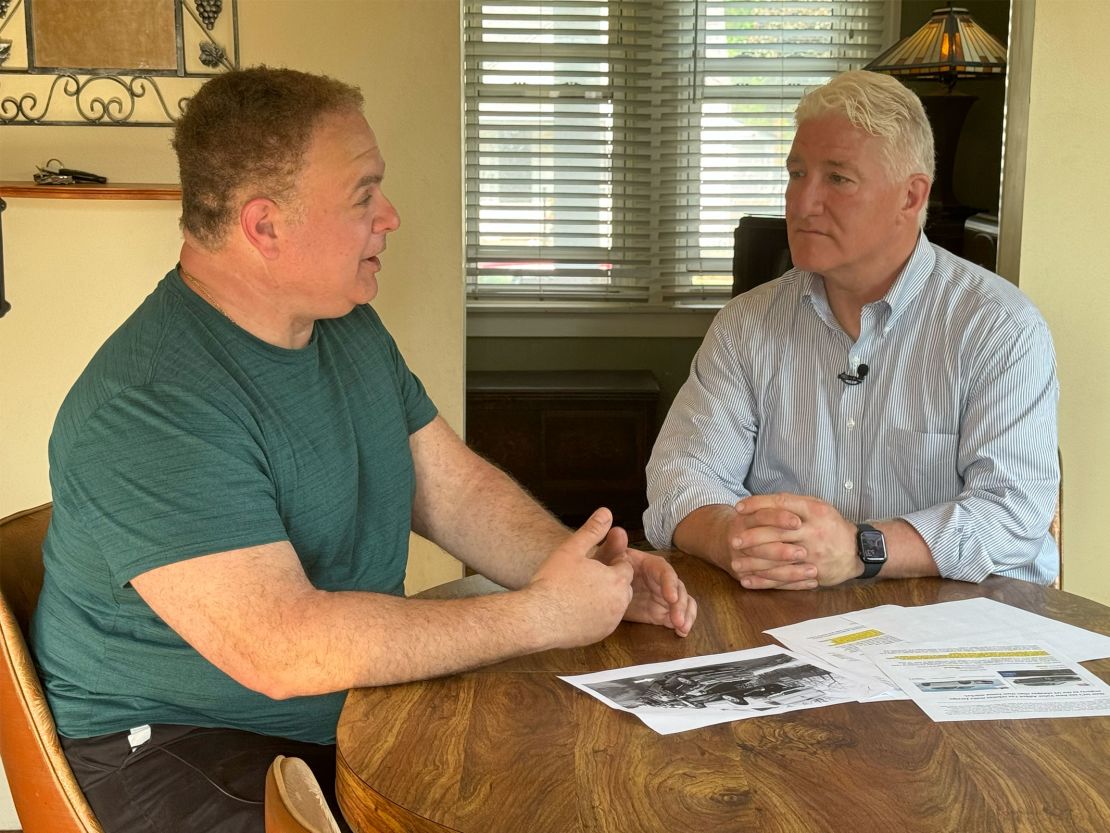
Vitale said Biden policies that he argues are hurting the industry are more important to him than the president’s decision to show up at a UAW picket line.
“I think the government seems to be appeasing the coasts,” Vitale said during an interview in St. Clair Shores, a town in battleground Macomb County just north of Detroit. “You know, everyone who lives in Manhattan thinks everyone should drive an electric car. Everyone who lives in Los Angeles thinks the world is coming to an end and you can’t have any more internal combustion engine cars. … The middle of the country, which used to be the manufacturing base of this country, doesn’t feel that way, doesn’t operate that way. So there is a huge divide.”
Vitale said a Trump win would mean an end to requirements for automakers to sell more EVs and, he believes, trade policies designed to protect American jobs.
“We’ve got the government against us at every turn,” Vitale said. “I can’t believe the people who are responsible for regulating our industries are so out of tune with our industries.”
Bob King sees a profound disconnect between Trump’s words and actions – or inactions – and he hopes the UAW leadership hones in on that as it sells its endorsement of Biden over the final five months of the campaign.
King worked at Ford for more than 40 years and was UAW president for four years during the Obama presidency, when the auto industry – and the UAW – were reeling from the 2008 global financial crisis.
That is when the two-tiered contracts went into effect, and King sees both a financial and a psychological hit that caused disaffection among blue collar workers – and ultimately drove many to Trump.
“They are listening because they don’t believe anybody has delivered for them,” King said in an interview. “People feel like the establishment hasn’t been delivering for them. Is your life better now than it was 10 years ago? For many working people, it is worse. Their standard of living has deteriorated. In some cases, their communities have deteriorated.”
The new contract, King argues, erases most of the concessions made after the financial crisis and, in his view, should boost the standing of the current UAW leadership as it makes the case Biden is better than Trump for union workers.
Tonya Rincon isn’t so sure of that.
“The leadership gives their advice and their official endorsement and in the rank and file it goes about 50-50,” said Rincon, a 30-year Ford worker and UAW member. “And it will probably go 50-50 this time.”
Perhaps, she said, the president’s decision to visit the picket line will help a tad.
“Maybe it will move a small percentage and Michigan is a state where small percentages matter,” she said in an interview in the Local 900 union hall. “So maybe it will be 51-49. But I don’t think it moved a lot of people.”
Rincon is committed to Biden.
“Because I think he does care about working men and women,” she said. “What he is doing for our kids, with helping to arrest out-of-control student debt. … Everything he stands for. It aligns with my values. So he has my support.”
Objections to Biden among Ford colleagues include the administration’s aggressive support of shifting to EVs. Rincon disagrees with that critique.
“I think we should have as many options for drivers as they want to have,” Rincon said. “We need to build cars and we need to paint them and put them on drive trains, regardless of what kind of engine they have. So it is not going to cost us jobs.”
Like Robinson, she rolls her eyes at colleagues who say Trump understands them better.
“He’s stiffed working men and women his entire business career,” Rincon said. “So I don’t understand that.”
But she went on, like King, to suggest some of Trump’s support stems from worries among voters that growing up in communities like Wayne isn’t as safe a bet as it once was.
“I didn’t go to college after high school,” she said. “So I bummed around working a bunch of crappy retail jobs and service jobs. … And then I lucked out, started a family and needed a good paying job. So I got into the plant.”
But that path to middle class security isn’t as guaranteed as it once was.
“For about the last 15 years that hasn’t really been the reality,” Rincon said, because of the two-tier wage and benefits system. “People were making as little working on the line now as I made 30 years ago when I started, which is kind of crazy. So people still wanted to get to the Big Three [automakers], but the reality was they weren’t making a realistic living.”
The new contract fixed some of those issues, and Rincon said morale is better inside the plant. “It mattered,” she said, that Biden came out to support the strikers.
But did it change the conversation about the president?
“Inside the plants?” Rincon said. “No, I don’t think it did.”
Read the full article here
